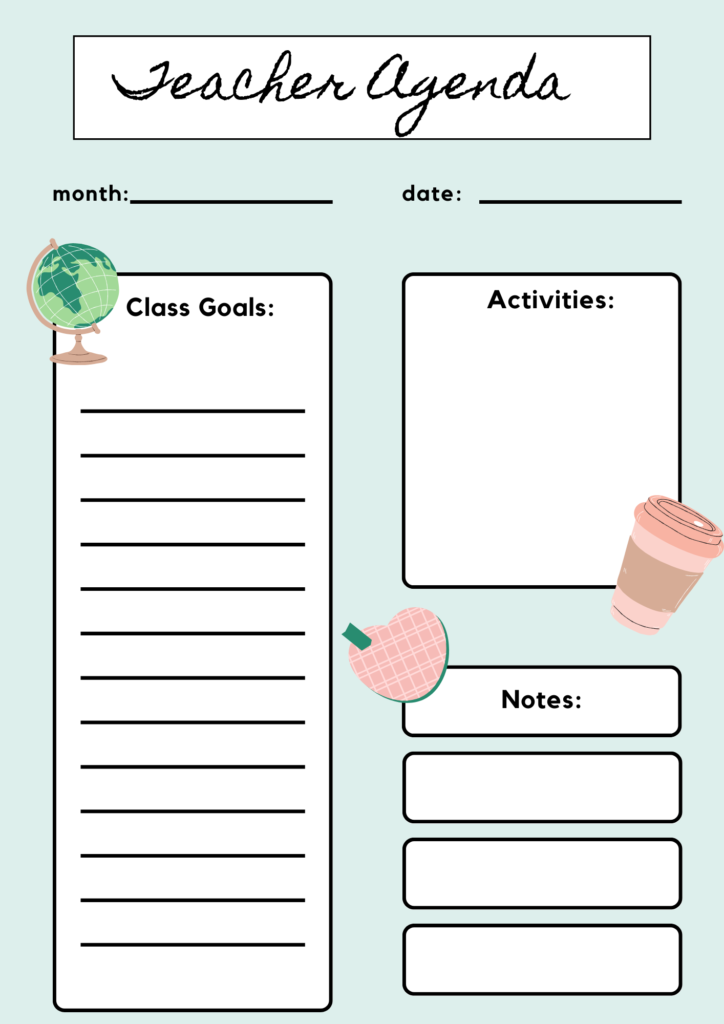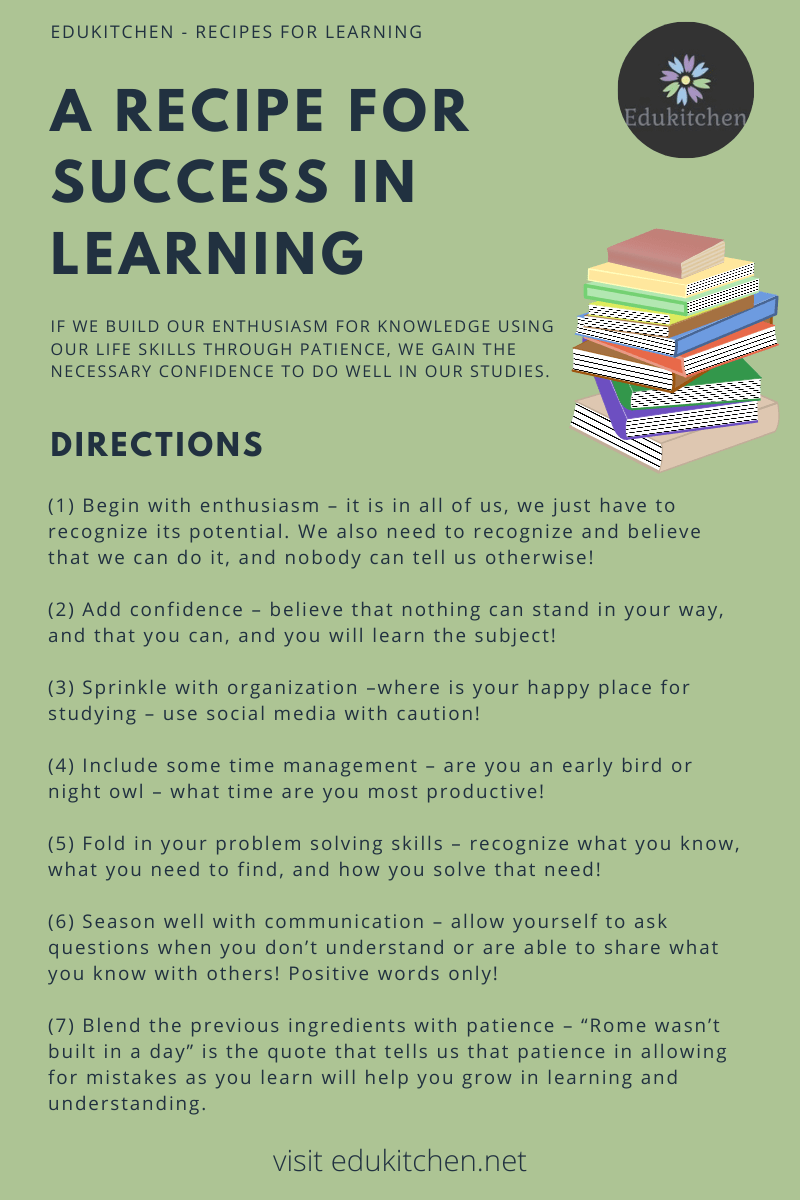Embarking on the journey of homeschooling can be both exciting and scary for new parents.
As they navigate the many resources in facilitating their child’s education at home, a wealth of advice and insights can provide invaluable support.
In this introduction, we hope to provide essential tips and guidance tailored for new homeschooling parents as teacheres. From establishing routines to fostering a love for learning, these pieces of advice aim to empower parents with the tools and confidence needed to create a thriving and enriching homeschooling experience for their children.
The advice I, as your author, share comes from my own experiences gained over the years of teaching.
Editable Teacher Agenda
The ETI Academy offers a wide range of products through their TpT store that helps teachers start the day off right by organizing their day through agendas. Explore this editable teacher agenda teachers can laminate and change as needed.

Click to view their selection of digital products that help support new teachers with their everyday planning
Before we talk about our specific videos, let’s talk about how access to educational videos is made possible by Masterclass.
Connect with Bill Nye on MasterClass
This blog contains affiliate links to highlighted websites and/or resources. By clicking on the link and making a purchase we may earn a small commission at no extra cost to you. Click here for full disclosure.
In the ever-expanding landscape of homeschooling, the quest for engaging and enriching educational resources is paramount.
Enter MasterClass, a platform renowned for offering expert-led video courses across various disciplines. These masterclass videos, delivered by accomplished professionals and experts in their fields, have the potential to be a game-changer for homeschooling classrooms.
By signing up, parents can explore how MasterClass videos can serve as a valuable supplement to the homeschooling curricula, providing a unique blend of expertise, inspiration, and real-world insights that can elevate the learning experience for students in the comfort of their homes.
Let’s take a look at one example: Bill Nye the Science Guy!

Bill Nye, otherwise known as the “Science Guy,” brings his infectious enthusiasm and wealth of scientific knowledge to MasterClass, offering a captivating learning experience.
In his MasterClass, Bill Nye delves into the wonders of science, breaking down complex concepts into digestible, engaging lessons.
As an expert communicator, Nye not only imparts scientific principles but also instills a passion for discovery and critical thinking. Whether explaining fundamental scientific theories or conducting captivating experiments,
Bill Nye’s MasterClass is a treasure trove for learners of all ages, providing a unique opportunity to learn science from a charismatic and celebrated educator.
We highlight Bill Nye because for us, he has proven over time to be a trusted source for science learning.
Let’s see now how you can become like Bill Nye in building your confidence with teaching.
Building Confidence in New Homeschooling Parents
We now take a look at two important topics homeschooling parents need to recognize before they officially begin their teaching career in ways to help build their confidence.
I. Teacher Identity in Education
As part of building confidence, we look at teacher identities, and how teachers can recognize challenges to their teaching in any classroom.
Teacher identity refers to the unique combination of roles, beliefs, values, and experiences that shape an individual’s sense of self as an educator.
It includes the personal and professional aspects that teachers bring to their roles in the classroom, influencing their teaching styles, interactions with students, and overall approach to education.
Teacher identity is a construct often shaped by ongoing reflections, experiences, and the broader educational context.

Understanding and embracing one’s teacher identity is essential for effective teaching, as it informs instructional decisions and interactions with students, contributing to a positive and impactful educational experience.
By building their confidence, teachers can also begin to build on their efficacy.
II. Building Efficacy in Homeschool Teachers
Efficacy is the belief in one’s own abilities to perform tasks in a way that is expected and that they are happy with.
Teacher efficacy therefore, focuses on the task of connecting with students to be able to teach and inspire.
Homeschooling teachers mindful of their efficacy should be able to strengthen the components we discuss as they gain experience in their teaching career.

Teacher efficacy is often the “make” or “break” factor that teachers continually face with their teaching careers.
What then makes for an “amazing” teacher in the classroom? This is the teacher that students will favor because of how valued they feel and the knowledge they gain by being in the presence of this teacher.
Five Important Teaching Points To Building Efficacy in Pre-Service Teachers
Here now are the five important points pre-services teachers need to consider when looking to build their confidence and efficacy in the classroom.
When used correctly, these points are guaranteed to allow a teacher to enjoy a happy, successful, and long-lasting teaching career.
I. Teacher attitude and Personality (It Matters)
In teaching, a good portion of our duties, roughly 40%**, is passing on the knowledge to students in order for them to succeed, however that’s not the hard part. The other 60%** is convincing them to listen to you.
A proper attitude towards convincing students to listen to what you have to say, means that your personality is one that is easy to get along with, and is willing to be funny, and transparent with students.
Comedic timing when used properly can bring much amusement, and comfort to both students and teachers in the homeschooling classroom.
**Note: The percentage statistics mentioned above are meant for entertainment purposes and not a scientific approach to teaching.
Click here to read more on how we believe humor benefits teaching and learning.
II. Teacher Readiness (Always, ALWAYS be Prepared)
“Expect the unexpected” is a phrase made popular in education, along with the phrase “take everything with a grain of salt”.
Why salt? It seems to be the “non-medical” cure for most health problems and now educational problems as well.
Formulating a plan for anything you do it is smart, and important, and teachers must admit that lesson plans do serve a purpose, which is to guide the energy needed to maintain a high and lasting interest in the topic being discussed.
However, there are times when unexpected events occur during class (say a student who vomits unexpectedly) and that means plans quickly need to change and teachers need to take a new course of action.
It may not happen, but just know that it could, and know your classroom well enough to formulate a back up plan!
This also applies to teachable moments in the class. The lesson plan you formulate is a guide, but if there is an opportunity to explore teachable moments, and how it connects to the lesson, then teachers should be encouraged to take this opportunity.
Teachable moments are usually unplanned but they come up in ways to enhance understanding or open dialogue.
III. Time Management (Be aware at all times!)
Now this is not an invitation to stare at the clock in the classroom, but from time to time be aware of how much time you allow for each activity during class.
As part of good classroom management strategies, there should be a clear beginning, middle, and end to the class so that students are not even aware of the time and ask the question;
“Class is done already?” If your students don’t want the class to end, you could count that lesson as a success!
On the other hand, if your students are constantly looking at their own clocks, or the classroom clock, or making it known that they find the class boring by asking how much time is left in the class, than, you can say that it is not a class either of you want to remember.
IV. How To Ask Thought-Provoking Questions
As a teacher, you should try not start a lesson by telling the students right away what page to turn to. By doing this, you will have already lost half their attention. Instead find interesting ways to begin your class by asking “thought provoking” questions.
If you are an economics teacher, you could start by ask a question similar to “Would you rather lose your mobile phone or your wallet?” and then go in to the lesson, keeping in mind to not let the time slip in this high energized debate.

V. Seek Support from Other Homeschooling Teachers
Find support groups for homeschooling teachers that look to offer you support in dealing the home as a classroom and all the other wonderful stuff that goes along with being a teacher.
On this website we have a blog space dedicated to teachers and several posts in support of teachers and teaching.
We encourage you to have look and wish you the best of luck with starting your teaching career. So don’t wait check it out!
Related Topics
Connect to our other pages as you navigate through our website. Explore what these pages have to offer you and you will be glad you did!
- Watch our educational videos to see how they help guide learning
- Get more tips on improving your time management skills
- Read more about how to improve your organizational skills
- Learn more about teacher identity and the online classroom
- Read more of our blogs on building effective teaching strategies
- See how Skillshare can help the homeschool curriculum
Join Our Newsletter Community Today!

Final Thoughts…
Teaching is one career that requires constant growth in learning and adaptability. Teachers are life long learners, and those who recognize this will find that they will enjoy a long, happy, and successful career serving others.
Share Your Thoughts!
Teachers we would like to hear from you! Let us hear your thoughts on teaching and what things you recommend new teachers should come know about teaching! Leave us your thoughts in the comments below! Connect with us on social media!




